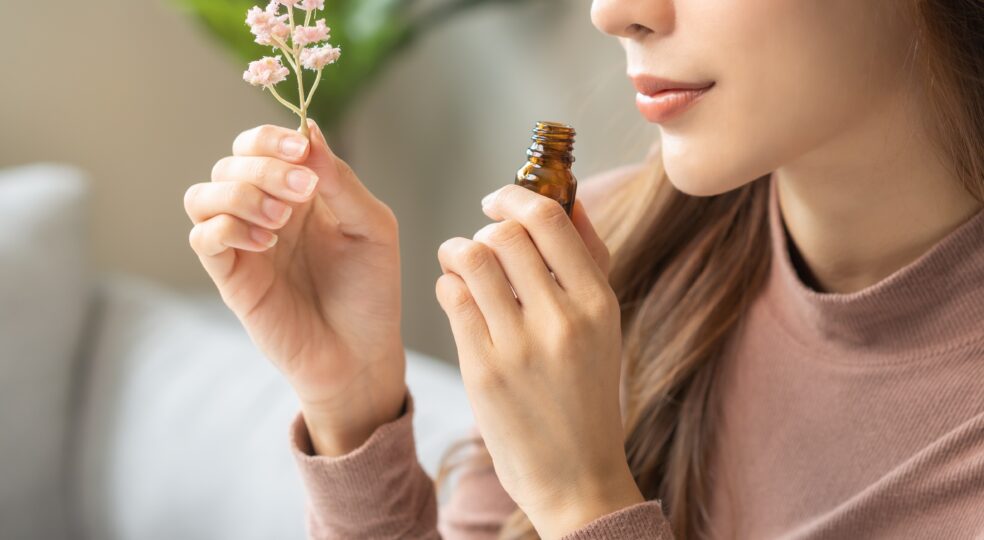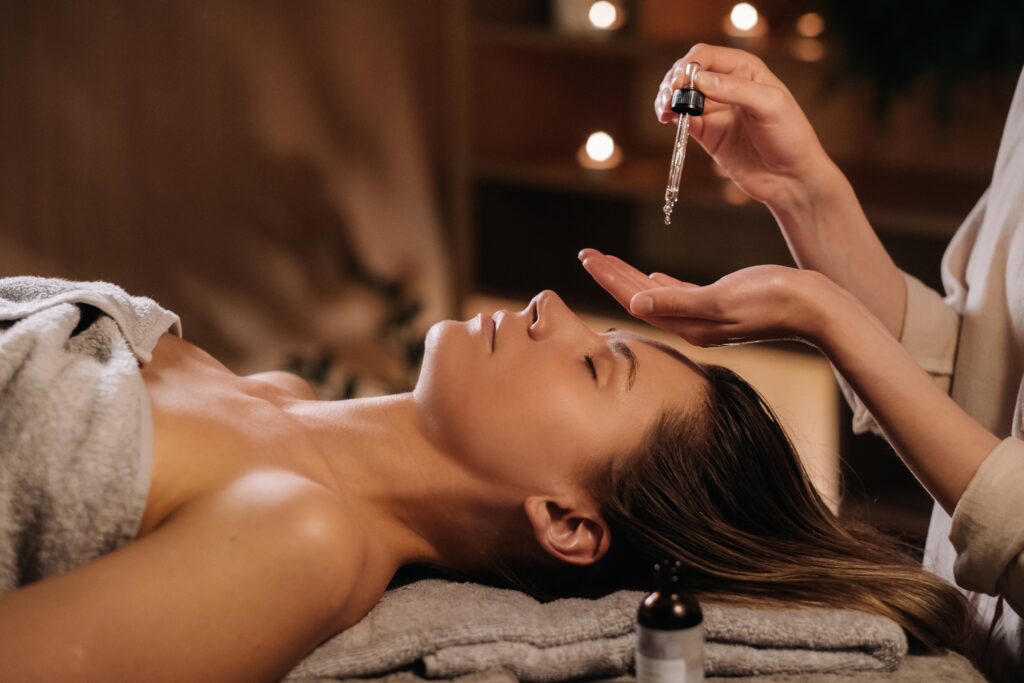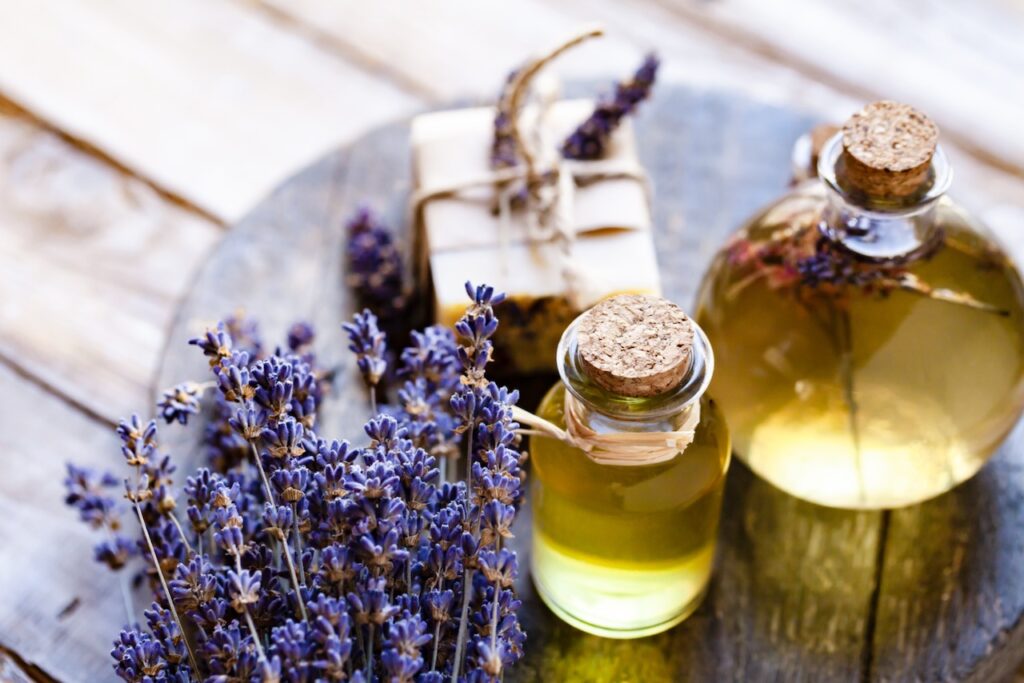
Health and well-being are essential aspects of life. If we don't feel well, our motivation drops and we become listless and moody. However, not every symptom requires medical treatment.
For some years now, herbal medicine, which exclusively uses medicinal plants to improve well-being, has become increasingly popular. Nevertheless, many people do not know what essential oils are and for what purposes they are used.
The positive effects of aromatherapy are just as diverse as the range of applications of this method. The power of nature has been used for thousands of years. This article deals with aromatherapy, its mode of action and possible applications.
What is aromatherapy? It is a branch of phytotherapy. In herbal medicine, plant extracts in the form of essential oils are used to improve the Self-healing powers to mobilize.
Therapies with essential oils are primarily used for preventative health care and to improve well-being. The method, which is based on natural medicinal herbs, is considered safe and reliable. The use of fragrances and natural aromas can have a positive effect on the sensation of pain and stimulate the immune system. Essential oils are said to have positive effects on the body, mind and soul.
Aromatherapy is often used as an additional measure as part of a medically prescribed treatment. It works by activating the olfactory receptors when essential oils are inhaled. Aromatherapy is part of a holistic treatment concept. It is used in the wellness sector as well as for stress reduction.
Ancient civilizations in Egypt and Mesopotamia were already familiar with herbal fragrances. Parts of plants were mostly used as incense for ritual or therapeutic purposes. The aromatic scent created by the smoke gave rise to the term perfume. The Latin word "per fumum" means: created by smoke.
Fragrant oil mixtures were part of the body care regimen of wealthy Roman women. The first experiments with aromatherapy took place as early as the Roman Empire. This is indicated by reports from the historian Pliny the Elder, who wrote about the use of mint leaves for cleaning and scenting sickrooms.
According to tradition, essential oils have been used for healing treatments for over 9,000 years. In the Middle Ages, the powers of nature were even harnessed to combat the plague.
Essential oils, which are used in aromatherapy, are extracted from plants. These are ingredients that we can perceive with our sense of smell. However, most essential fragrance oils have the property of evaporating relatively quickly in the air.

What requirements and experience do professional aromatherapists need? No special degree or training is required for aromatherapy training.
The courses and seminars last several days, weeks or months. There is currently no standardized professional training for aromatherapy in Germany.
The basic knowledge for this varied activity is taught in private schools and institutes. On the internet, you can find educational institutes that offer training to become an aromatherapist in the form of further education. The curriculum includes topics such as:
In principle, any adult who is interested in the healing power of plant substances and aromatherapy can complete specialist training. Qualifying as an aromatherapist is the perfect complement for healthcare professionals.
Massage and wellness therapists, alternative practitioners, masseurs and fitness trainers in particular benefit from additional knowledge about plants and their active ingredients. Midwives, pharmacy specialists and beauticians can also expand their professional expertise with additional training in aromatherapy.
Holistic therapy concepts are becoming increasingly important. It is now scientifically recognized that health and well-being depend on the interaction between body, mind and soul.
Typical fields of work for aromatherapists are aroma counseling and aroma care in private practice or as a permanent employee in the fields of medicine, wellness, fitness and general health care.
There are many uses for aromatherapy oils in everyday life. Private aromatherapy at home is helpful as:
Essential oils have a direct effect on the brain through their natural fragrance. This is where the control mechanisms are located that are responsible for our emotions and are responsible for physical processes.
Aromatherapy oils have relaxing, harmonizing, invigorating or refreshing properties. The appropriate substance for aromatherapy is selected depending on the intended use. The extremely versatile essential plant substances are perfect for scenting rooms, for inhalations and for regenerating baths.
Rosemary is a small, evergreen plant. Like basil and sage, it belongs to the mint family. Due to its antioxidant, anti-inflammatory and neurological properties, rosemary essential oil has been used in aromatherapy for centuries.
Rosemary Aromatherapy Oil is extracted from rosemary leaves and the flowering tops of this plant. Used correctly, rosemary essential oil can help with the following:
Rosemary oil can be used internally or externally. As Rosemary Aromatherapy Oil is an essential oil in a high concentration. Concentration a few drops per application are sufficient.
Room fragrancing by diffusion is the simplest method of using essential oils. Natural diffusion ensures optimum distribution of the fragrances in the room. If you want to enhance the effect, insert a few thin wooden sticks into the fragrance bottle. The essential oil is then released in a targeted manner via these.
Electric ultrasonic diffusers are now available. These devices are offered in the form of a plate or lamp. Ultrasonic waves generated by vibrations distribute the essential oils in the air.
Aromatherapy diffusers are used as room humidifiers in living rooms, bedrooms, offices, beauty salons, fitness and wellness areas.
Aromatherapy is a proven method of promoting health and well-being in a natural way. These five tips should help you to use essential oils even more effectively.
Sleep disorders are often due to stress or inner restlessness to be attributed. Promote restful sleep by sprinkling a few drops of essential oil on your pillow just before going to bed.
There are many causes of mood swings. In women, hormonal changes or cycle irregularities are often associated with a bad mood. connected. With their fresh, invigorating fragrance, citrus essential oils quickly put you in a better mood.
High levels of stress have a negative impact on our health and well-being. A full bath to which a few drops of ylang ylang essential oil are added helps, inner peace to come.
Do you relax while meditating? Or would you like to learn meditative techniques? One Meditation for beginners makes it easier to start meditating. When used in a fragrance lamp, frankincense essential oil promotes a spiritual mood.
Essential oils such as lemon, rosemary or peppermint are helpful for loss of appetite. They stimulate the appetite with their fresh, hearty aroma and prepare the body for digestive work.

Mindfulness and aromatherapy are a perfect combination. In everyday life Mindfulness helps you to deal better with stress, crises and other pressures. Mindful behavior protects you from physical and mental stress. Overload.
Use the possibilities of aromatherapy to help you relax. Small Mindfulness exercises are very easy to learn and can be combined with an aromatherapy application. Take a little one every day Time outto perceive your feelings and thoughts and relax with aromatic scents.
As a natural method, aromatherapy is suitable for activating self-healing powers and improving general wellbeing. Easy-to-use aromatic oils support your health routine.
Do you want to live a relaxed life and genuine joie de vivre feel? Learn proven techniques to help reduce stress in our free masterclass. In combination with your personal aromatherapy at home, relaxation methods will bring more serenity into your life!

